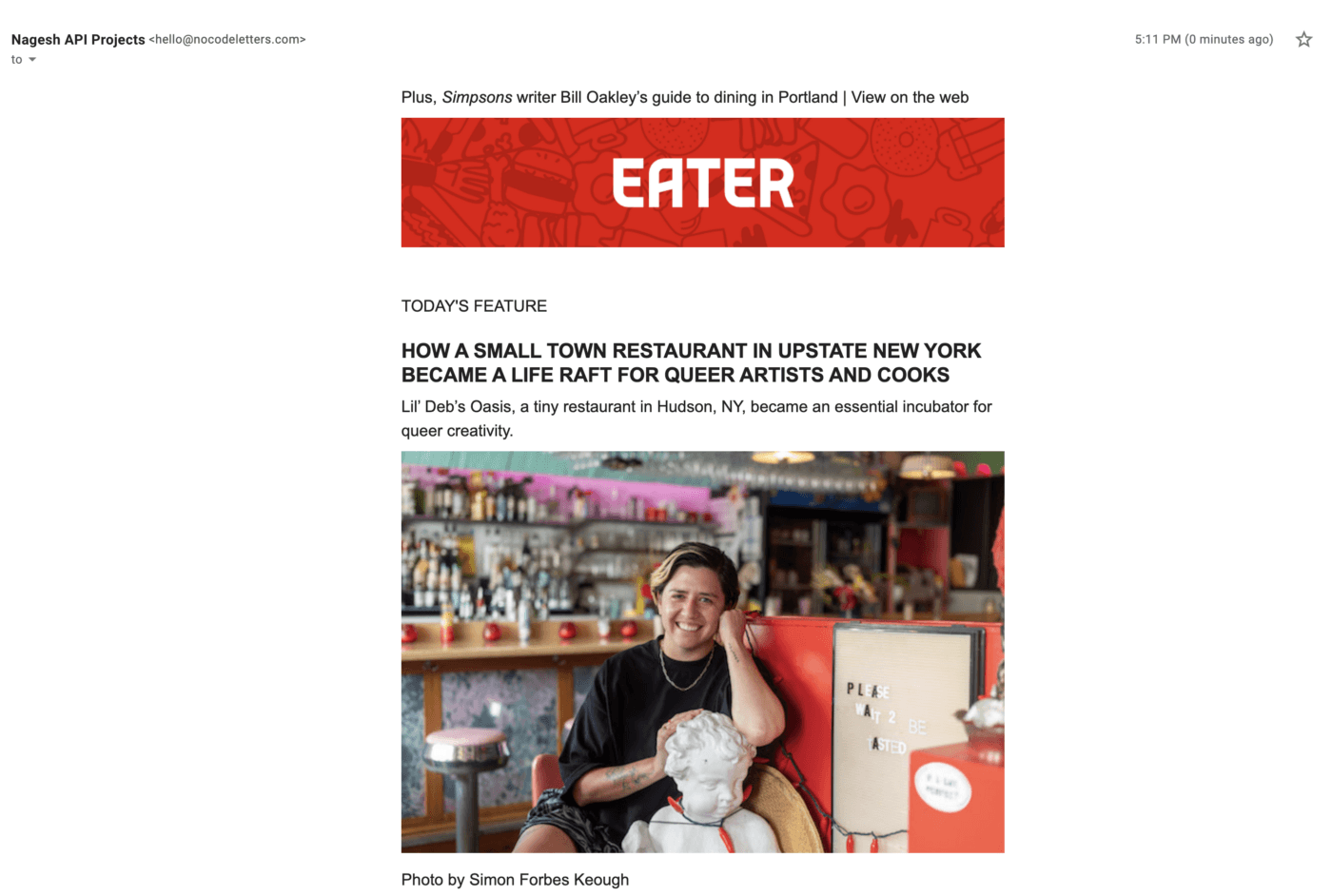From WhatsApp Chaos to Notion Order: How I Built a Personal Knowledge Bridge
For years, my best ideas lived in the worst place possible: WhatsApp. Every time inspiration struck, I'd message myself. Every interesting article? Sent to myself on WhatsApp. Random thoughts during a walk? WhatsApp.
This worked fine until it didn't. After accumulating hundreds of notes, links, and ideas, I realized my digital memory was locked in a messaging app with terrible search, no organization, and no integration with my other tools.
I needed to migrate this treasure trove to Notion, where I manage the rest of my personal knowledge. This post shares how I built a WhatsApp-to-Notion bridge using FastAPI and AI, turning a weekend project into a solution that would have taken weeks of manual work.
The WhatsApp Knowledge Problem
Like many people, I've accumulated a strange collection of digital habits. WhatsApp became my default capture tool because:
- It's always open
- It's on all my devices
- It supports text, images, and voice notes
- It has a "message yourself" feature
The problem? WhatsApp is terrible as a knowledge management system. There's no tagging, poor search, and no way to organize information. My valuable ideas were essentially trapped.
Looking at the sea of messages to myself, I realized I had accumulated:
- Product ideas that never got developed
- Book recommendations I forgot to follow up on
- Research notes that never made it to proper documents
- Voice memos containing ideas I barely remembered recording
The Notion Solution
Notion has become my second brain over the years. With its database capabilities, I've built systems for:
- Project tracking
- Research notes
- Idea management
- Resource libraries
I already had a structured knowledge base in Notion with separate databases for ideas, resources, inspirations, and projects. What I needed was a pipeline to get my WhatsApp content there, properly classified and organized.
Technical Constraints
The first roadblock: WhatsApp doesn't offer an official API for message retrieval. There are unofficial libraries like whatsapp-web.js, but they're unreliable and could potentially get your number banned.
My solution? Use WhatsApp's export feature, which generates a text file containing your chat history, then build a processor to parse and migrate this data.
Building the Bridge: Architecture
I designed a Python-based system with these components:
- WhatsApp Collector: Parses exported chat files
- Content Processors: Handle text, images, voice notes, etc.
- AI Classifier: Categorizes content and extracts key information
- Notion Integration: Populates my databases
Let me walk through the key parts.
Parsing WhatsApp Exports
WhatsApp exports come as plain text files with a predictable but messy format:
[12/31/22, 10:15:43 PM] Me: Here's that article on remote work trends: https://example.com/article
[1/1/23, 8:02:14 AM] Me: Need to follow up with Sarah about the project proposal
[1/2/23, 3:17:52 PM] Me: <attached: voice_note.opus>
The parser needed to handle multi-line messages, media attachments, and different date formats:
class WhatsAppCollector(BaseCollector): def __init__(self, export_path: str): self.export_path = Path(export_path) self.media_dir = self.export_path.parent / "WhatsApp Media" # Regex pattern for message parsing self.message_pattern = re.compile( r'^\[?(\d{1,2}/\d{1,2}/\d{2,4},\s*\d{1,2}:\d{2}(?::\d{2})?(?:\s*[AP]M)?)\]?\s*-\s*([^:]+):\s*(.+)$' ) self.media_pattern = re.compile( r'<attached: (.+)>' ) async def collect(self) -> List[MessageCreate]: messages = [] current_message = None async with aiofiles.open(self.export_path, 'r', encoding='utf-8') as file: async for line in file: # Parse message logic... if message_match: # Process as new message if current_message: messages.append(await self._create_whatsapp_message(current_message)) # Start new message... elif current_message: # This is a continuation of the previous message current_message['continued_lines'].append(line.strip()) return messages
The AI Magic: Classification and Enrichment
This is where the power of AI transformed the project. Instead of manually categorizing hundreds of messages, I built a classifier that could identify:
- Whether a message was an idea, resource, inspiration, or project
- What topics it related to
- Its priority and energy level
- What actions it implied
Here's a simplified version of how it works:
async def classify(self, content: str) -> Dict[str, Any]: # Get base classifications categories = await self._classify_categories(content) # Get topics topics = await self.get_topics(content) # Identify action items actions = await self._identify_actions(content) # Measure energy level (how excited I was about this idea) energy_level = await self._measure_energy_level(content) # Generate tags for searchability tags = await self._generate_tags(content, categories, topics) return { 'categories': categories, 'topics': topics, 'actions': actions, 'energy_level': energy_level, 'tags': tags }
The classifier uses pattern matching and keyword detection to categorize content. For example, messages containing phrases like "what if" or "could we" are likely ideas, while messages with URLs are probably resources.
Voice Notes: The AI Transcription Layer
One of the most valuable additions was handling voice notes. I often record quick thoughts while walking, but these audio files were essentially lost in WhatsApp.
I added a processing layer using OpenAI's Whisper API:
async def process_voice_note(self, file_path: str) -> str: """Transcribe voice note using OpenAI Whisper API.""" try: with open(file_path, "rb") as audio_file: transcript = await openai.Audio.atranscribe( "whisper-1", audio_file ) return f"Voice Note Transcription: {transcript['text']}" except Exception as e: return f"[Voice note could not be transcribed: {str(e)}]"
This transformed previously inaccessible audio content into searchable text, properly classified in my Notion workspace.
Populating Notion
The final step was sending the processed content to Notion, organized by type:
async def _store_in_database(self, message: Message, db_type: str) -> Dict[str, Any]: """Store message in a specific database.""" # Get database-specific property mapping properties = await self._get_database_properties(message, db_type) result = await self.client.pages.create( parent={"database_id": self.database_ids[db_type]}, properties=properties ) return result
What I love about this approach is that it's not just a flat migration - it's intelligent organization. Each message goes to the right database with the right metadata, making my knowledge immediately useful and discoverable.
Results: From Chaos to Clarity
Running this system on my personal WhatsApp export yielded impressive results:
- 484 ideas identified and properly categorized
- 312 resources with extracted links, now searchable by topic
- 156 inspirations categorized by energy level and potential
- 79 project seeds with next action items extracted
- 42 voice notes transcribed and categorized
The best part? What would have taken me days to code manually and weeks to migrate was accomplished in a weekend, thanks to the power of modern AI tools and Python libraries.
Beyond Text: The Media Challenge
One challenge was handling media files. WhatsApp exports include a separate folder with media, but the filenames don't always match the references in the export file.
I built a media processor that:
- Identifies media references in messages
- Locates the corresponding file in the media folder
- Processes it appropriately (image analysis, audio transcription)
- Uploads it to S3 for permanent storage
- Links it to the Notion entry
async def process_media(self, media_filename: str) -> Optional[str]: """Process WhatsApp media file.""" if not self.media_dir.exists(): return None # Look for the file in media directory media_path = self.media_dir / media_filename if not media_path.exists(): return None # Process based on file type extension = media_path.suffix.lower() if extension in ['.jpg', '.jpeg', '.png']: return await self._process_image(media_path) elif extension in ['.opus', '.mp3', '.ogg']: return await self._process_audio(media_path) elif extension in ['.pdf', '.doc', '.docx']: return await self._process_document(media_path) # Default handling for other files return await self._store_generic_file(media_path)
Lessons Learned
Building this WhatsApp-to-Notion bridge taught me several valuable lessons:
- Personal problems make great projects: Solving my own knowledge management issues created a tool I use daily
- AI transforms development speed: What would have been a multi-week project became a weekend project
- Structured data is valuable data: The real value wasn't just in migrating content, but in organizing it
- Voice is an underutilized medium: Transcribing voice notes unlocked ideas I had forgotten about
Build Your Own Bridge
Want to build a similar system? Here are the key components you'll need:
- Export your WhatsApp chats: Settings > Chats > Chat history > Export chat
- Set up a Notion integration: Create a new integration in Notion's developer portal and get an API key
- Prepare your Notion databases: Create databases for different types of content
- Build or adapt a processor: Use the code samples in this post as a starting point
- Process and migrate: Run the processor on your export file
The full code for this project is part of my larger Research Notes Processor system, which I plan to release "someday".
Future Enhancements
I'm already planning several enhancements:
- Real-time synchronization: Using WhatsApp web automation for continuous updates
- Enhanced AI classification: Training a custom model on my personal data
- Multi-source integration: Adding Gmail, Twitter, and other data sources
- Bidirectional sync: Sending reminders from Notion back to WhatsApp
Conclusion
For years, I've been capturing ideas in WhatsApp that deserved a better home. Building this bridge between WhatsApp and Notion has not only rescued years of digital memories but also made them more valuable through structure and classification.
The combination of Python, FastAPI, and AI made it possible to build in a weekend what would have taken weeks manually. If you're facing a similar digital organization challenge, I hope this inspires you to build your own bridge.
Your knowledge deserves a proper home. Sometimes, you just need to build the moving truck to get it there - Claude 3.7 Sonnet



